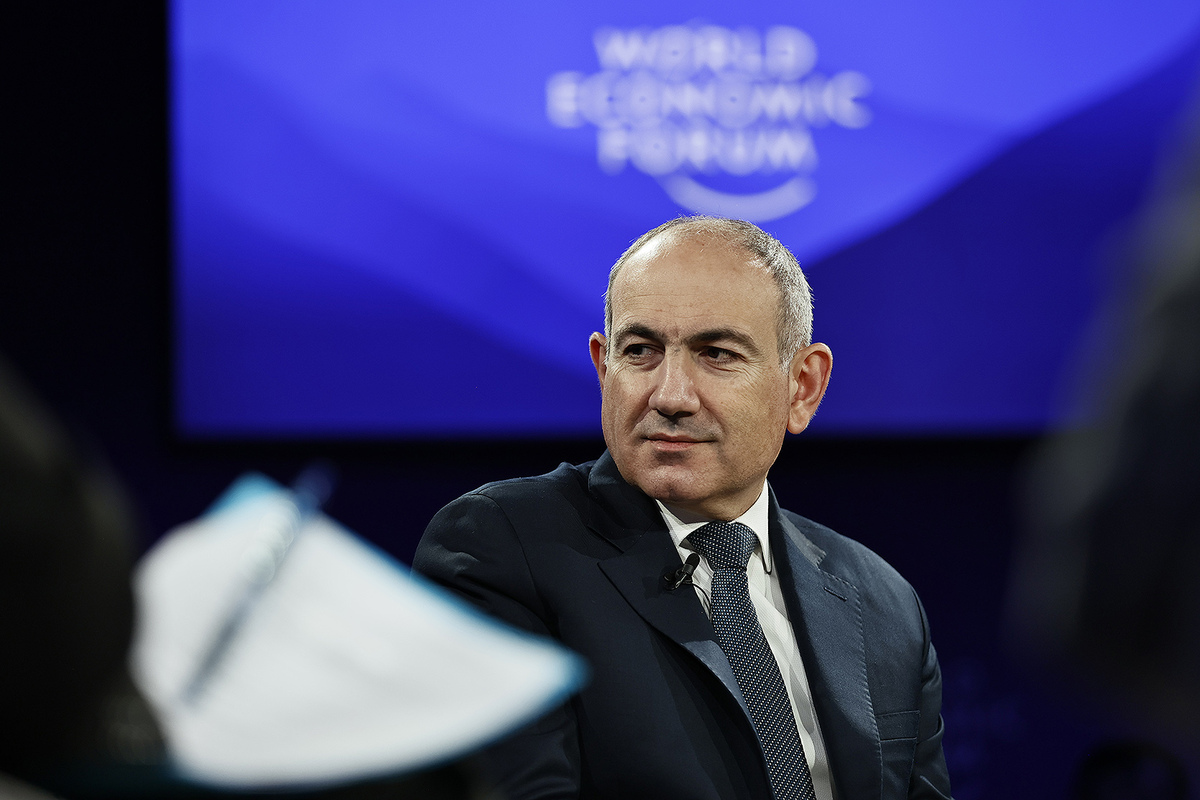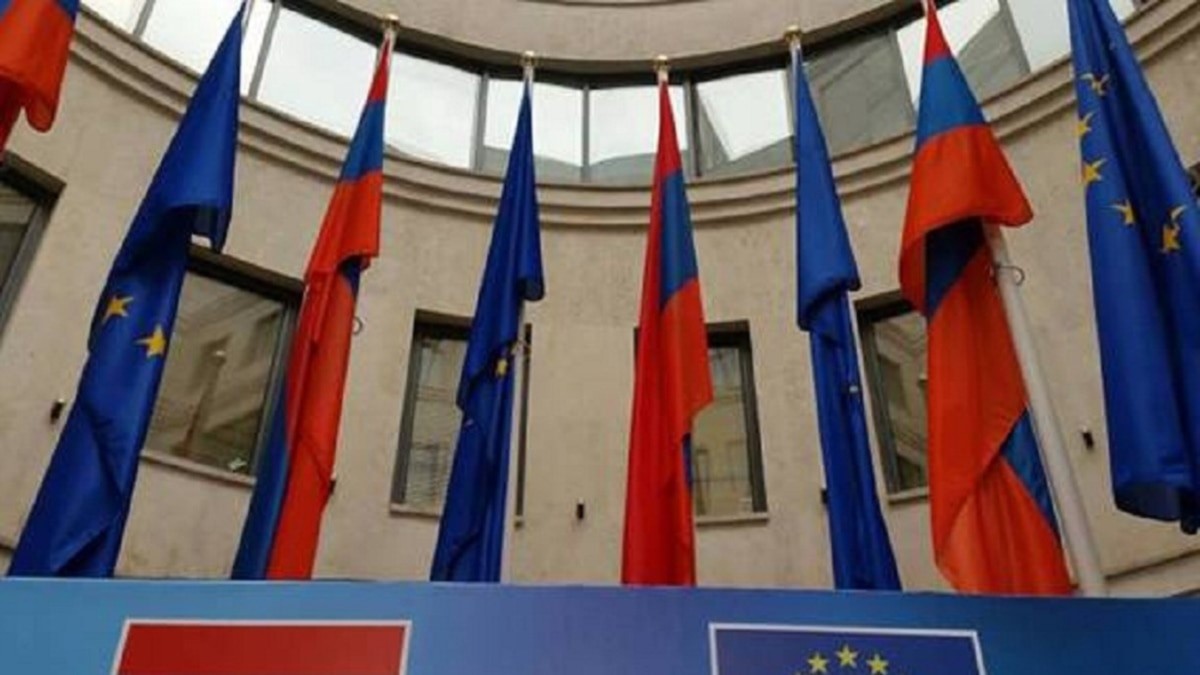Armenia to begin EU accession process as parliament backs civil society initiative
Armenia begins EU accession process
After two days of debates, Armenia’s parliament approved a bill to initiate the process of joining the European Union. The ruling Civil Contract faction voted in favor (64 MPs), while the opposition I Have Honour faction opposed it (7 MPs). The Armenia faction (Hayastan) abstained from the vote entirely.
Opposition MPs argue that this move jeopardizes free trade with the Eurasian Economic Union (EAEU), an economic bloc led by Russia, which includes Armenia, Belarus, Kazakhstan, and Kyrgyzstan. Pro-Russian opposition forces in Armenia warned that turning away from Eurasian markets would negatively impact the country’s economy. They also insisted that “nobody in the EU is waiting for Armenia.”
The I Have Honour faction released a separate statement, calling the bill “another populist stunt by the current leadership to create unfounded expectations.”
Meanwhile, the bill’s authors—civil society representatives and pro-Western political forces—maintain that “Armenia is welcome in the European Union.”
Regarding Armenia’s exit from the EAEU and potential economic difficulties, Artak Zeynalyan, a member of the initiative group, stated:
“We are not seeking to replace the 185-million-strong [EAEU] market with the 450-million-strong [EU] market. The goal is to supplement the 185-million market with the 450-million one.”
Both the government and the initiative group acknowledge that after signing a free trade agreement with the EU, Armenia would no longer be able to remain an EAEU member. This would mean losing tariff-free trade with EAEU countries, potentially leading to difficulties if the transition period is prolonged.
The “Euroreferendum” project proposes a nationwide vote on EU accession. The initiative group gathered 60,000 signatures—exceeding the required 50,000—to submit the bill for parliamentary consideration. On 9 January 2024, the government approved the project, sending it to the National Assembly for debate.
- Armenia takes first steps toward EU membership: Government approves Eurovote plan
- Armenian EU membership referendum backers gather more signatures than required
- “EU decisions open new opportunities for Armenia”: a comment from Yerevan
- “Armenia did not decide to align itself with the West just today,” – Pashinyan to British media
“Adopting bill does not constitute EU membership application”
Armenia’s Deputy Foreign Minister Paruyr Hovhannisyan stated that the bill reflects the deepening of Armenia-EU relations and the aspirations of Armenian citizens. However, he clarified that its adoption “does not constitute an application for EU membership.”
According to Hovhannisyan, the initiative aligns with Armenia’s “balanced foreign policy,” which aims to diversify economic and security partnerships.
In his speech, he noted progress in Armenia-EU relations, highlighting:
- The launch of dialogue on visa liberalization,
- Ongoing negotiations on the “Armenia-EU Partnership: A New Agenda” document,
- EU assistance through the European Peace Facility,
- The deployment of a civilian monitoring mission on Armenia’s border with Azerbaijan.
“The European Union remains Armenia’s key partner in supporting the development of institutions based on shared values,” he stated.
“No intention to neutralize EAEU”
Artak Zeynalyan, a member of the “Euroreferendum” initiative group, explained to MPs that the bill affirms the beginning of Armenia’s EU accession process, not its immediate entry. He stressed that it is not aimed at neutralizing the Eurasian Economic Union (EAEU) and does not call for Armenia’s withdrawal or severing ties with the bloc.
According to Zeynalyan, Armenia is already aligning its standards with EU requirements, with significant investments being made in laboratories that ensure product quality:
“The standards and regulations used in the EAEU are not created within the EAEU. They are taken from the EU, shortened, modified, and then turned into EAEU standards. If Armenia aligns its standards with the EU, the EAEU standards will naturally fit within them.”
He believes that Armenia should gradually phase out its EAEU membership, which will happen when the country is “mature enough and ready to join the EU’s customs union.” He acknowledged that “prices on goods may rise in the process.”
Zeynalyan argued that the path set by this bill would lead to the development of economic security mechanisms. Additionally, he said it would contribute to:
- Establishing peace and stability in the region by restoring the balance of power,
- Expanding opportunities for national security,
- Bringing Armenia’s military in line with the standards of EU member states’ armed forces.
“Gap has formed between political dialogue and economic cooperation with EU”
“There is now a situation where Armenia’s political dialogue with the European Union has advanced much further than our economic relations. A huge gap has emerged between the level of political dialogue and economic cooperation. This gap must be filled,” said Arman Yeghoyan, Chair of the Parliamentary Commission on European Integration.
He emphasized that this should not come at the expense of reducing political dialogue but rather through expanding economic cooperation.
Yeghoyan also addressed a key opposition concern: under what circumstances Armenia could leave the Russia-led Eurasian Economic Union (EAEU):
“Once a free trade agreement with the European Union is signed, Armenia will no longer be able to remain a member of the EAEU from the day the agreement takes effect. You ask what happens if we leave the EAEU before joining the EU? If the transition period is too long, we will face difficulties.”
“CEPA must be implemented first for European integration”
Armen Rustamyan, an MP from the Armenia (Hayastan) faction, stated that Armenia has yet to fulfill 40% of the Comprehensive and Enhanced Partnership Agreement (CEPA) with the EU, signed in 2017:
“What prevents us from having a rule-of-law state, a democratic country, fighting corruption by European standards, and ensuring pluralism of opinion according to these standards? And will Armenia’s accession to the EU accelerate without fulfilling these commitments? We are far from EU standards.”
Seyran Ohanyan, head of the Armenia faction, argued that CEPA is the best framework for both Armenia’s legal and political alignment with the EU and for maintaining strategic and economic ties with Russia:
“At this moment, there is no greater opportunity for political rapprochement. Adding this issue to the agenda is artificial, unrealistic, and detached from geopolitical realities.”
He also warned that such radical steps pose a challenge to Armenia’s security:
“We can move closer to the European Union only to the extent that it does not become an existential threat to Armenia.”
However, the MP did not specify which country he considers a potential threat.






















